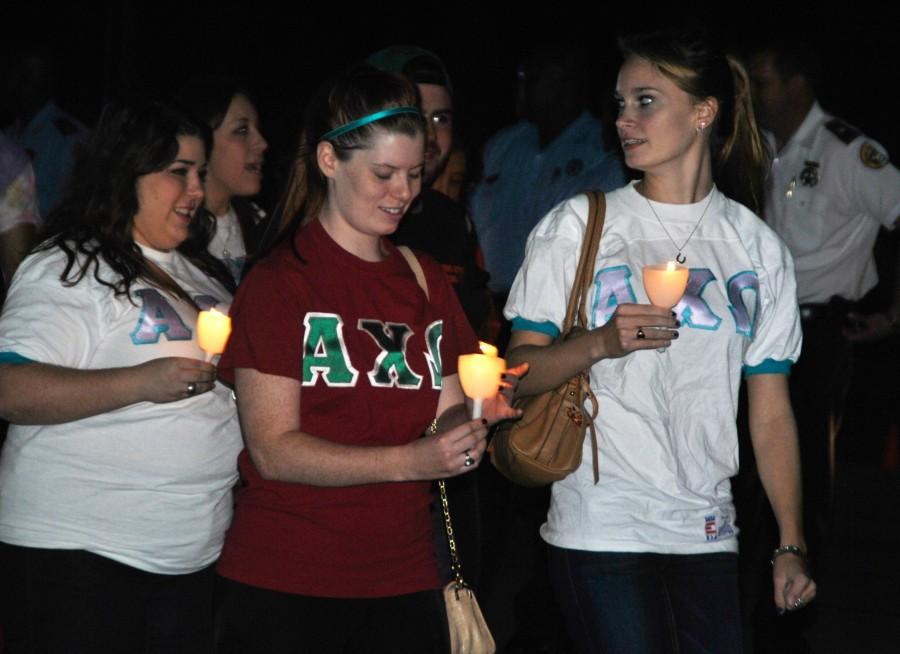During opening remarks at Take Back the Night, a a triangle was struck every fifteen seconds, to represent how often sexual violence in the U.S.
This past Wednesday, students of Loyola University participated in Take Back the Night, a march that takes place at universities across the country that calls for the end of sexual violence.
The National Coalition for Domestic Violence reports that one in every four women will experience domestic violence in her lifetime.
Take Back the Night in New Orleans involved a gathering of Loyola, Tulane University, University of New Orleans, Xavier University and Dillard University students, as well as other members of the New Orleans community. After opening remarks and keynote speeches from survivors, students march through city streets with candles to protest the sexual violence in their communities and around the world.
The event is timely, as October is Domestic Violence Awareness Month. This week has also been designated as Purple Week, a week to focus on the issue of domestic violence and preventing its occurrence in our communities. Sexual violence and domestic violence are issues that affect people of all ages, genders and communities.
Sexual violence is an issue that affects college-age individuals, including students on Loyola’s campus. The Center for Disease Control reports that 37.4 percent of female rape victims were first raped between the ages of 18-24.
After the march, Take Back the Night continues with an open microphone portion, during which students can share their experiences with violence or offer uplifting words for the individuals attending. The open microphone portion takes at least an hour, a testament to how much the community has been affected by sexual violence.
Sexual violence is a problem that often happens in silence. It is important to remember that the statistic only covers people who have reported their attacks and experiences. The number may very well be larger.
The Loyola community strives to be an empowered and open community and can offer resources for those dealing with or those who have dealt with sexual or domestic violence in the past, like the University Counseling Center.
Though sexual violence and domestic violence are problems that have been traditionally associated with women, it is important to remember that men also suffer and need help and support.
Sexual violence and domestic violence are issues that are associated with shame. The term “slut-shaming” has emerged to describe the act of shaming women for showing their sexuality, ranging from the act of having sex to blaming rape victims for what they were wearing during their rape. This is unacceptable.
These victims should not have to suffer in silence. They are entitled to the dignity and rights that everyone else is. They have the right to feel safe, secure and supported by their families, loved ones and communities.
Take Back the Night is an event that happens once a year. Let’s not wait a whole year to talk about the issues that Take Back the Night addresses.
Learn the signs of domestic and sexual violence. Keep an open communication line with your friends and make sure they are aware of Loyola’s resources. Make yourself a resource – a source of love and support. If you suspect your friend is suffering in silence, don’t be afraid to talk to a trusted faculty member or the counseling center.
Make sure that you are not a source of sexual shame. Respect the life and dignity of the people around you.







